10 Essential Tools Every Organic Gardener Needs
- LCB Fertilizers
- Feb 14
- 3 min read
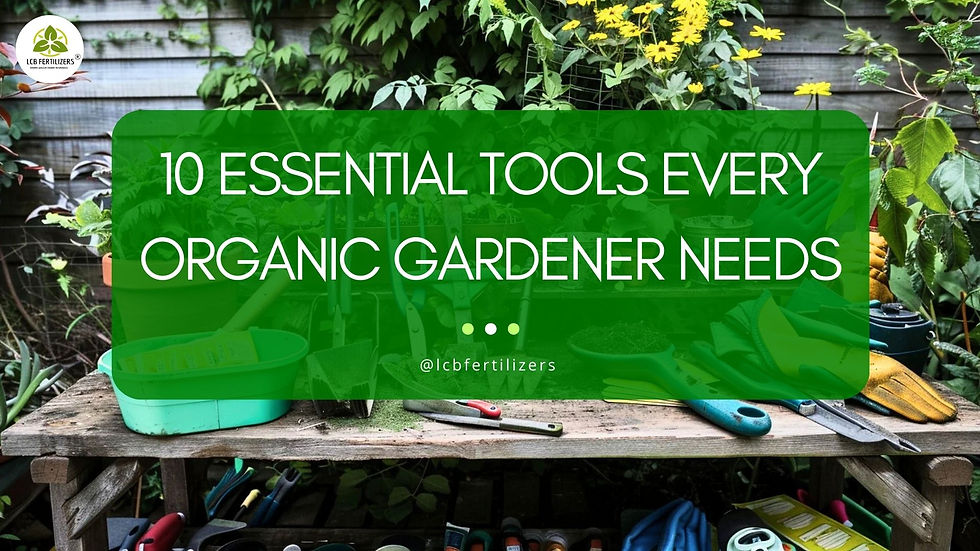
Organic gardening is a rewarding journey for those who care about healthy plants, soil, and the environment. As an experienced gardener, I understand the importance of having the right tools.
These tools make gardening tasks easier and help maintain an organic garden effectively. Whether you are just starting or already experienced, these 10 tools are essential for every organic gardener.
1. Garden Fork

A garden fork is a must for organic gardening. It helps loosen soil, break clumps, and remove weeds. Use it to aerate the soil, which improves plant growth. Choose a strong garden fork with sturdy tines to handle heavy work.
2. Hand Trowel
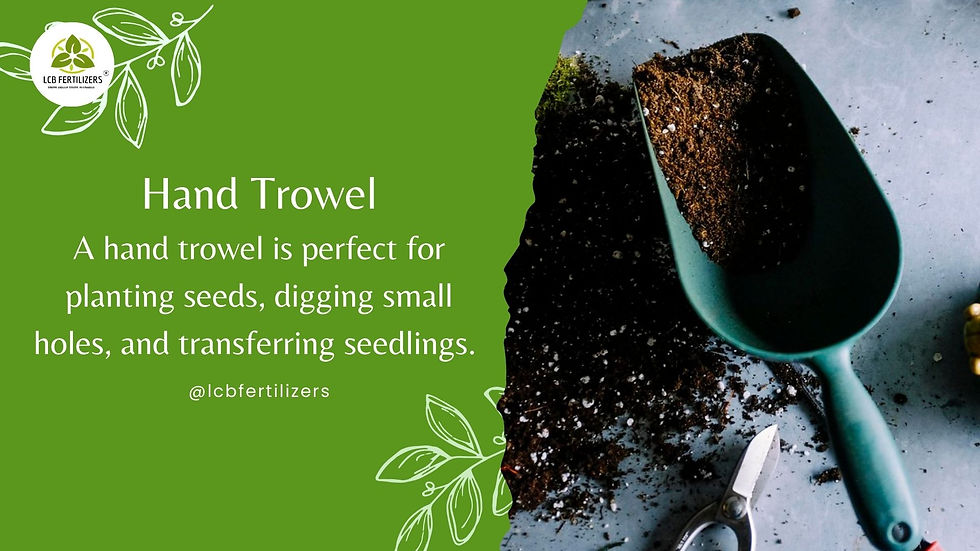
A hand trowel is perfect for planting seeds, digging small holes, and transferring seedlings. It is also useful for mixing compost into the soil. Look for a trowel with a comfortable grip, especially if you spend long hours gardening.
3. Pruning Shears
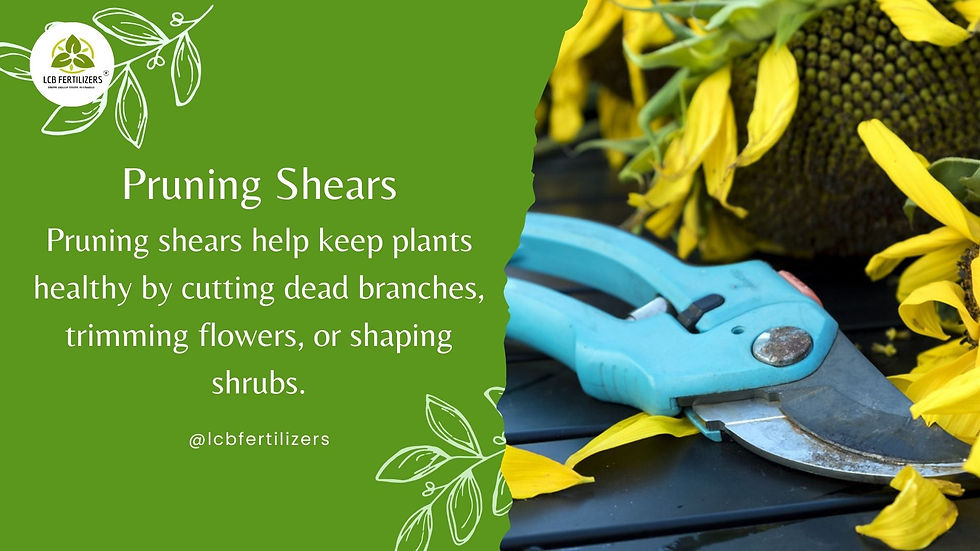
Pruning shears help keep plants healthy by cutting dead branches, trimming flowers, or shaping shrubs. Use sharp shears to avoid damaging plant stems. Regular pruning improves airflow and sunlight, which is vital for organic gardening.
4. Garden Hoe
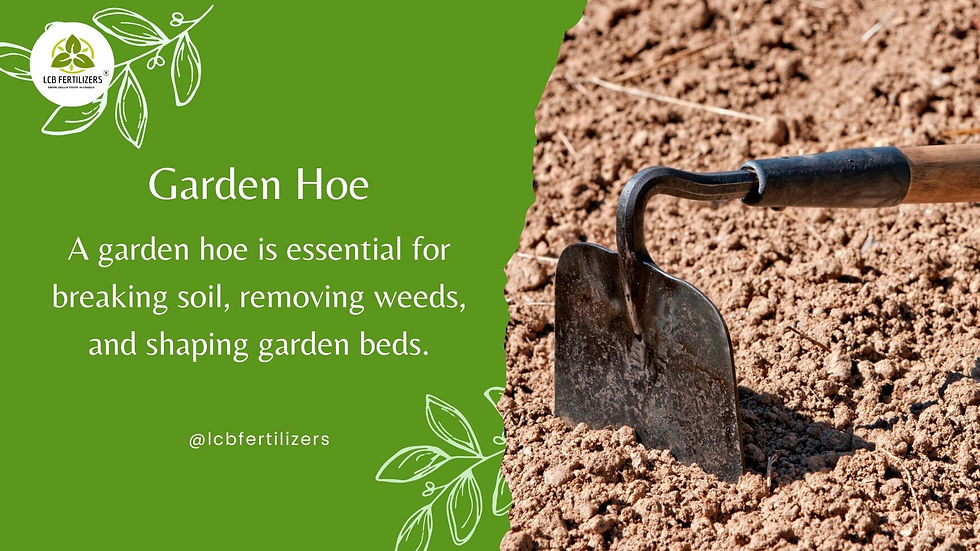
A garden hoe is essential for breaking soil, removing weeds, and shaping garden beds. Organic gardeners use it to prepare the soil without disturbing the natural ecosystem. Flat hoes are ideal for weeding, while pointed hoes are better for digging.
5. Compost Bin
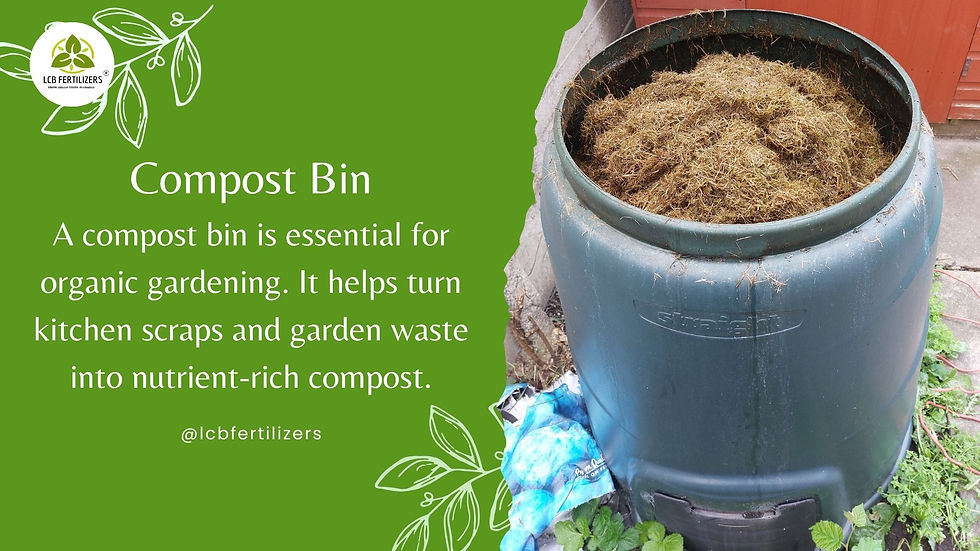
A compost bin is essential for organic gardening. It helps turn kitchen scraps and garden waste into nutrient-rich compost. Compost improves soil fertility, providing natural nourishment for your plants. Choose a bin that suits the size of your garden. Regularly turn the compost to speed up decomposition and ensure even mixing.
6. Watering Can
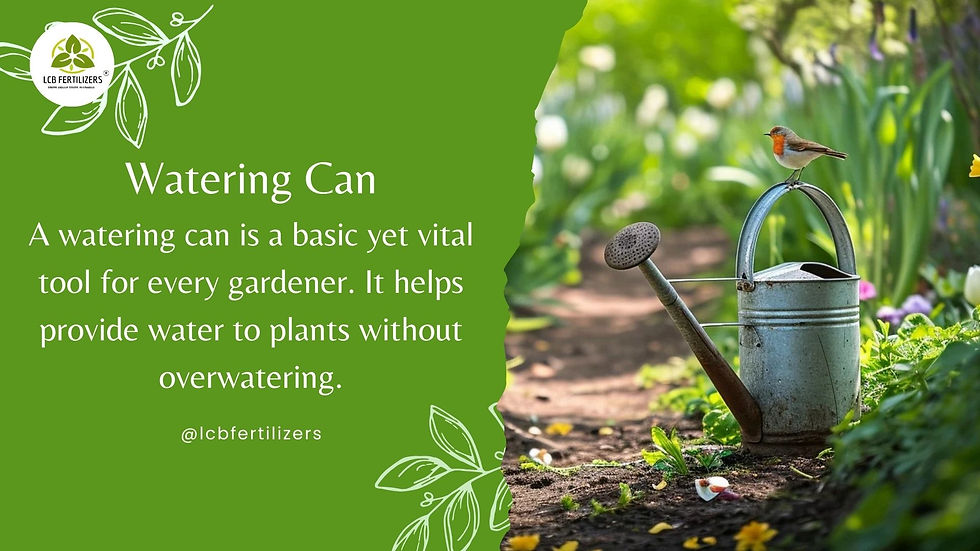
A watering can is a basic yet vital tool for every gardener. It helps provide water to plants without overwatering. For organic gardening, use a can with a rose nozzle, as it creates a gentle spray. This prevents soil erosion and protects young plants.
7. Weeding Tool
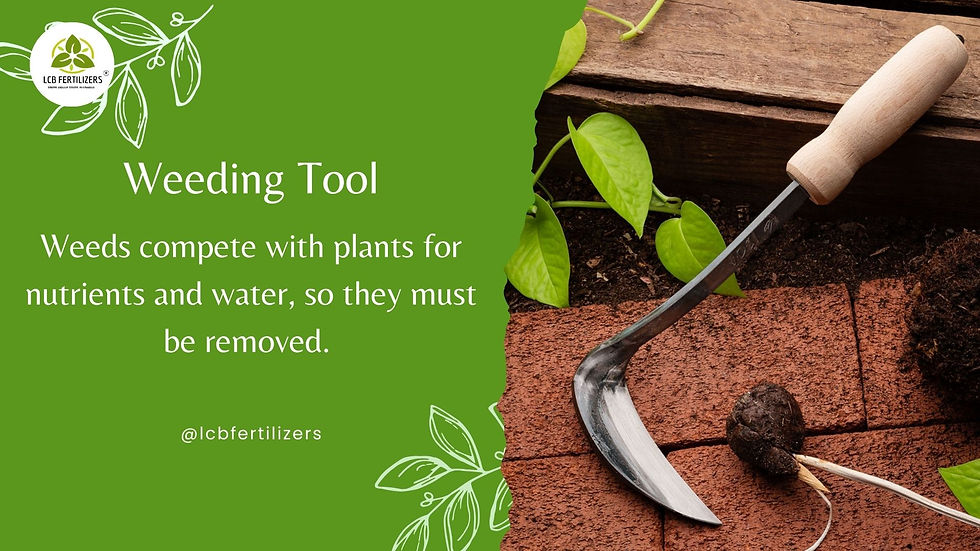
Weeds compete with plants for nutrients and water, so they must be removed. A weeding tool makes this task easier by removing weeds without disturbing plant roots. Choose a long-handled weeder to avoid bending too much. Regular weeding keeps your organic garden healthy and productive.
8. Garden Gloves
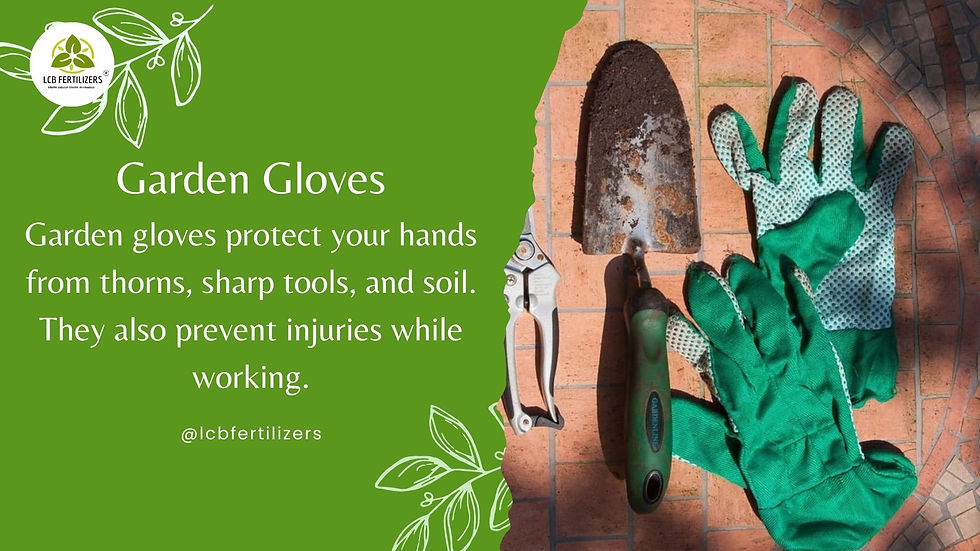
Garden gloves protect your hands from thorns, sharp tools, and soil. They also prevent injuries while working. Organic gardening often involves handling compost and natural fertilizers, so gloves keep your hands clean and safe. Look for durable and breathable gloves for comfort.
9. Wheelbarrow
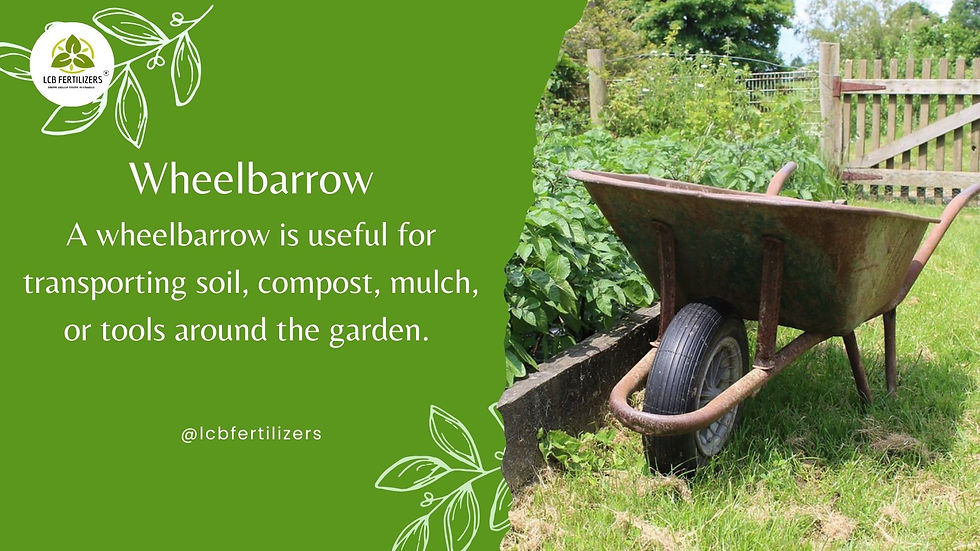
A wheelbarrow is useful for transporting soil, compost, mulch, or tools around the garden. It reduces physical strain and saves time. Choose a sturdy wheelbarrow with a strong frame and a good tyre to handle different terrains. It is a valuable asset, especially for large organic gardens.
10. Soil Tester
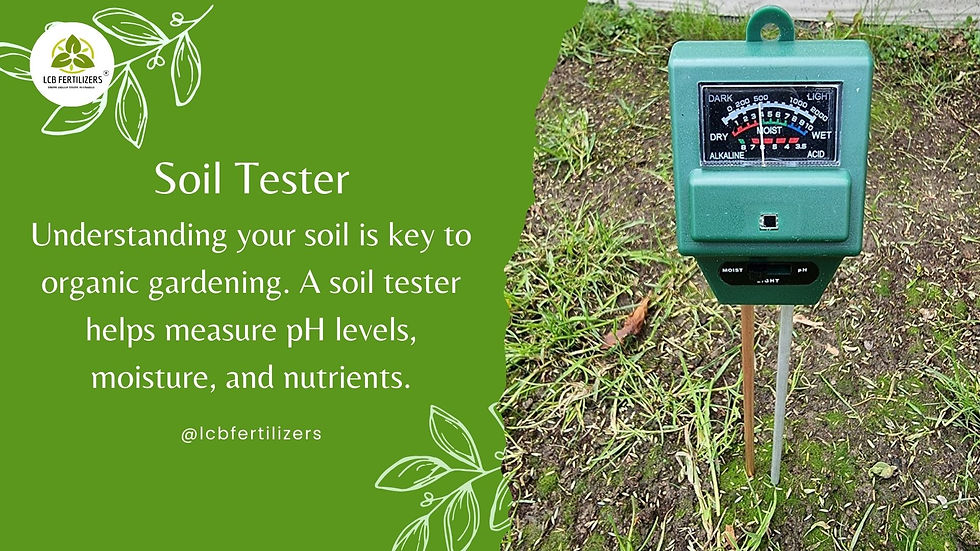
Understanding your soil is key to organic gardening. A soil tester helps measure pH levels, moisture, and nutrients. This information helps you decide what amendments your soil needs. Healthy soil is the foundation of any organic garden, so regular testing ensures plants get what they need to thrive.
Why These Tools Are Essential for Organic Gardening
Organic gardening focuses on maintaining soil health and avoiding synthetic chemicals. The tools mentioned above support this approach by:
Reducing physical effort while gardening.
Improving soil structure and fertility.
Helping manage weeds and pests naturally.
Promoting sustainable gardening practices.
Each tool plays a specific role, making your gardening experience more efficient and enjoyable.
Tips for Using These Tools Effectively
Clean tools regularly: Dirt and moisture can cause rust, so clean your tools after each use.
Store tools properly: Keep tools in a dry place to prolong their life.
Choose quality over quantity: Invest in durable tools that last longer and perform better.
Use tools with care: Follow proper techniques to avoid injury and damage to plants.
How to Start Organic Gardening
If you are new to organic gardening, begin with a small garden and gradually expand. Start by preparing the soil with compost and using natural fertilisers. Plant seasonal crops suitable for your climate, and use the tools mentioned above to maintain your garden.
Remember, organic gardening is about working with nature. Focus on improving soil health, encouraging beneficial insects, and growing diverse plants. This approach ensures long-term success.
Every organic gardener needs the right tools to make gardening easier and more effective. From preparing the soil to caring for plants, these 10 tools are essential for maintaining a healthy and productive organic garden.
Invest in good-quality tools, take care of them, and use them wisely. Whether you are a beginner or experienced, these tools will support your journey towards sustainable and rewarding organic gardening.




Comments